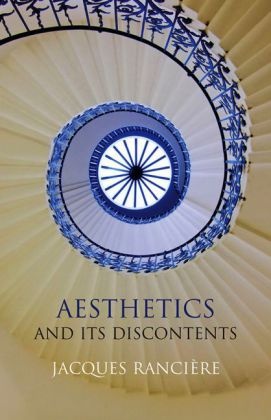Read more
Informationen zum Autor Jacques Rancière is Emeritus Professor of Philosophy at the University of Paris (St. Denis). Klappentext Only yesterday aesthetics stood accused of concealing cultural games of social distinction. Now it is considered a parasitic discourse from which artistic practices must be freed. But aesthetics is not a discourse. It is a historical regime of the identification of art. This regime is paradoxical, because it founds the autonomy of art only at the price of suppressing the boundaries separating its practices and its objects from those of everyday life and of making free aesthetic play into the promise of a new revolution. Aesthetics is not a politics by accident but in essence. But this politics operates in the unresolved tension between two opposed forms of politics: the first consists in transforming art into forms of collective life, the second in preserving from all forms of militant or commercial compromise the autonomy that makes it a promise of emancipation. This constitutive tension sheds light on the paradoxes and transformations of critical art. It also makes it possible to understand why today?s calls to free art from aesthetics are misguided and lead to a smothering of both aesthetics and politics in ethics. Zusammenfassung Only yesterday aesthetics stood accused of concealing cultural games of social distinction. Now it is considered a parasitic discourse from which artistic practices must be freed.But aesthetics is not a discourse. It is a historical regime of the identification of art. This regime is paradoxical, because it founds the autonomy of art only at the price of suppressing the boundaries separating its practices and its objects from those of everyday life and of making free aesthetic play into the promise of a new revolution.Aesthetics is not a politics by accident but in essence. But this politics operates in the unresolved tension between two opposed forms of politics: the first consists in transforming art into forms of collective life, the second in preserving from all forms of militant or commercial compromise the autonomy that makes it a promise of emancipation.This constitutive tension sheds light on the paradoxes and transformations of critical art. It also makes it possible to understand why today's calls to free art from aesthetics are misguided and lead to a smothering of both aesthetics and politics in ethics. Inhaltsverzeichnis Introduction Politics of Aesthetics Aesthetics as Politics Problems and Transformations of Critical Art The Antinomies of Modernism Alain Badiou's Inaesthetics: the Torsions of Modernism Lyotard and the Aesthetics of the Sublime: A Counter-reading of Kant The Ethical Turn in Aesthetics and Politics ...

